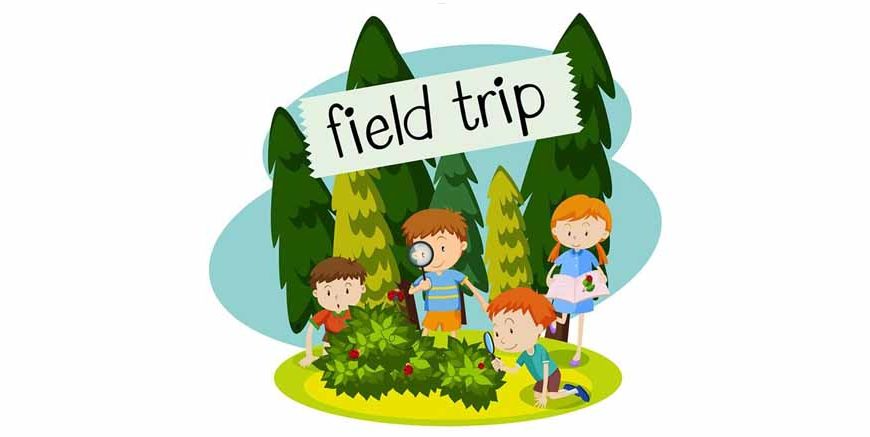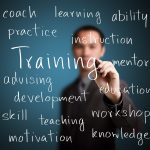Field trips are fun and engaging activities that children can undertake outside the classroom and enjoy observing nature, and making memories. Let it be said that you, the parent, bear a significant responsibility to prepare your child for such learning endeavors. In the following article, there are tips that a parent should follow when preparing for a field trip in order to help his/her child prepare for one.
Table of Content:
Educational Field Trips:
These educational field trips are meant to supplement and support classroom learning objectives through student organization and engagement in meaningful and practical experiences that go with the classifications taught within a classroom. Such trips may include tourism with cultural sites and artifacts, historical places, art galleries, theater, natural walks and several other forms of outing. The first aim is aimed at increasing the students’ level of knowledge of a given topic through direct observation of events and objects in their environment.
When preparing your child for an educational field trip, consider the following:
- Discuss the trip’s purpose: Before your child embarks for this certain field trip, make sure to sit with your kid and explain why you are going for that certain field trip and how it has to do with what they were being taught in school.
- Research the destination:Support your child to learn on the locality of the place to be visited. Look up interesting facts or historical information together.
- Encourage curiosity: To make the trip more effective, ensure you teach your child some questions to ask and possible incidents to look out for. This will make them have a rich experience as they shall be involved in the activity more than a mouse click.
- Set learning goals:Engage your child to set a few achievable goals for the trip, e.g. the child will look for three different facts or things/ areas of interest in that location.
Field Trip Checklist:
A preschool child who is prepared shall, therefore, be in a position to have a worthwhile and productive time during the field trip. Use this checklist to ensure your child has everything they need:
- Permission slip: Make sure that the duly accomplished form is submitted to school before or on the indicated date.
- Appropriate clothing:Ever before leaving your house, ensure that you look at the weather icons on the TV and dress your child appropriately. Make sure to pack appropriate footwear like sneakers and a comfortable pair of walking shoes and any other extra wear that will be needed.
- Lunch and snacks: Take bottled water for drinking and if necessary pack a healthy lunch and some foods in Check if the school provides meals or if outside food is allowed at the destination.
- Water bottle: Pack a reusable water bottle so that your child can take water in the middle of the day when they get thirsty.
- Backpack:In this case, provide a back pack that is comfortable and of the appropriate size for carrying basic items.
- Money: If permissible, allocate little cash for purchasing souvenirs and any other activities.
- Medication:If your child needs medication to be taken, it should be packed properly and the teacher should know about it.
- Camera or notebook:As per the school rules and regulations, it is suggested that you might carry a disposable camera or a small notebook which your child may use to record the tour.
- Sunscreen and insect repellent:For outdoor trips these are items you should carry depending on the weather to protect your child from.
- Emergency contact information:Put a card with your contact information at your child’s school bag.
Benefits of Field Trips:
Understanding the numerous advantages of field trips can help you better prepare your child and maximize the experience. Some key benefits include:
- Enhanced learning: Fun and interesting trips can lead to a scouting of knowledge and possibly enhanced performance on the academic arena.
- Increased motivation: Trips to other places make children appreciate how people from other cultures, lives and attitudes live by helping them become more tolerant.
- Cultural awareness: Getting to know other kids, teachers, and other new people from different environments assists in their social and communication development.
- Social skills development:Excursions may teach children about various careers and may motivate them to choose a given field in the future.
- Career inspiration:A large number of nature-based trips can have a positive effect on the environment for travelers can develop an understanding of the same and begin to preserve it by implementing its best practices.
- Environmental awareness: New experiences must be handled so as to foster confidence, independence and ability to solve new problems.
- Personal growth: Many times field trips leave the children with fond memories that they will always treasure with them for ever.
- Memory formation: This is because purposeful learning activities that you or your child may participate in during a field trip can improve the child’s learning experience.
To maximize these benefits, encourage your child to:
- Pay attention during guided tours or presentations
- Participate in group discussions and activities
- Take notes or photos (if allowed) to help remember key points
- Reflect on their experience afterward through conversation or journaling
Field Trip Activities:
Engaging in purposeful activities during a field trip can enhance your child’s learning experience. Here are some ideas to discuss with your child before the trip:
- Scavenger hunt: Announce to your child several objects or attributes to look for and record during the trip.
- Sketch and describe: Ask your child to draw something as they perceive it and make them put down a few words to explain the picture.
- Interview an expert:If possible recommend to your child to take questions to ask a guide or anyone that seems to be knowledgeable at the destination.
- Compare and contrast: You can encourage your child to compare and contrast the world that he or she witnessed during the trip with their own
- Collect (when permitted): To enhance the activity of the trip, come up with thought-provoking questions that are best answered in the small notebook.
- Photography challenge:As you are parenting, make your child write a short story based on their experience from the field trip.
- Journal prompts:Tell the child to pay attention to things such as visuals, audibles, olfactory, and kinetic during the tour.
- Create a story: Encourage your child to recreate a part of the trip and make a powerpoint presentation to be given to the class or a powerpoint to be shown to the family later.
- Sensory observations: Ask your child to note what they see, hear, smell, and feel throughout the trip.
- Mini-presentations:Suggest that your child prepare a brief presentation about one aspect of the trip to share with the class or family later.
By helping your child prepare thoroughly for their field trip, you’re setting the stage for a rich, educational experience that extends far beyond the classroom. Remember to show enthusiasm for the upcoming adventure, as your positive attitude will likely influence your child’s outlook. After the trip, take time to discuss what they learned and enjoyed most, reinforcing the valuable lessons gained from this unique learning opportunity.
For more such interesting blogs, Visit EuroKids
















